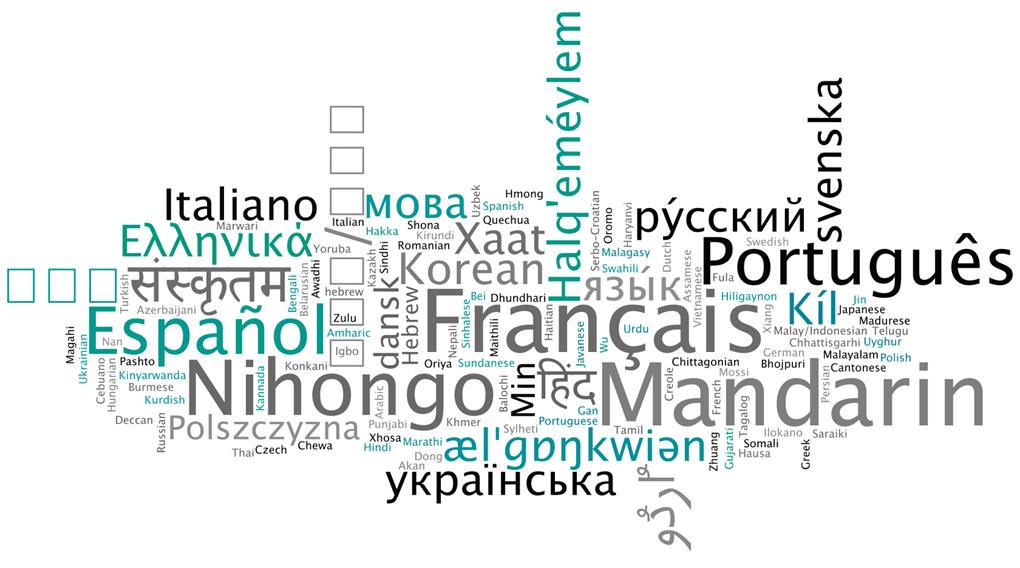Linguistic Changes Over Time in America
By: Allison Miles

Credit to: Wolfram Language and System-WordCloud
Linguistic Changes Over Time in America

Credit to: Wolfram Language and System-WordCloud
Considering the variety of fascinating cultures that reside within the United States, the fact that multiple languages exist alongside them is quite plausible. The primary use of language is to provide individuals with the communication, cultural, academic, and social skills needed to navigate their everyday environments and situations. "Ninety percent of the U.S. population speaks and understands at least some English,
and most official business is conducted in English" (Kwintessential). However, presently there is no official language in the United States, despite there being about 350 different dialects, which is 311 more than when surveyed in 2009.
The argument of an "English-only" America is still ongoing, with some progressive and inclusive thoughts in mind, and some quite the opposite. The United States, although known for having a rampant period in 1607 as the Spaniards began to colonize Virginia, can be described as possessing a broad spectrum of individuals. Even the colonists migrated to America, albeit accidentally, in search of better rights and a more free life, just as immigrants today are doing. With the "salad bowl" that the United States is, an individual will cross paths with different cultures and languages every day; there should be no debate whether or not to speak only English. Cultural and linguistic differences are what make America exactly what it is: particular and extremely diverse.
Today's society and how their dialect has evolved from Shakespearean and the Old English way of speaking is quite extraordinary. "It was not only the grammar that changed
during the Shakespearean time. Regarding the lexis, many words were
mostly borrowed from Latin and French because English was seen as an informal
language and not sufficient enough to express new terms in the fields of
religion, science, music and theology." The phonology was very specific at that time, changing rapidly; but presently, instead of focusing on every syllable and letter and depending on one's accent, there is a substantial lack of pronunciation.
Whatever topic it may be in language: slang, modern changes, or narrowing one down to represent a country, the defining factor of the whole is that it is evolving constantly, morphing, to fit our constant needs.
Whatever topic it may be in language: slang, modern changes, or narrowing one down to represent a country, the defining factor of the whole is that it is evolving constantly, morphing, to fit our constant needs.
Hi Allison,
ReplyDeleteI really liked reading your blog post this week. It seems like you put a good amount of work into finding your data and really gave me some new things to learn such as the amount of languages that are spoken in the US, who new! Anyways the overall paragraphs are composed nicely and you really kept everything cohesive especially with your hyperlinks, and finally brought it all around with a thoughtful conclusion. Thanks for giving me something interesting to read and some new info to learn.
-Abigail Horton
Is it "quite plausible" or just a reality? One section I was unsure about was when you said, "The United States, although known for having a rampant period in 1607 as the Spaniards began to colonize Virginia, can be described as possessing a broad spectrum of individuals." A rampant period of...language shift? What languages were spoken in Virginia before Jamestown was settled?
ReplyDeleteI appreciate the "salad bowl" analogy, too. While you have a link to it, can you contextualize the differences from that term to "melting pot"--they are distinct.
Finally, in your last section, you say "today's society"--which one in particular?